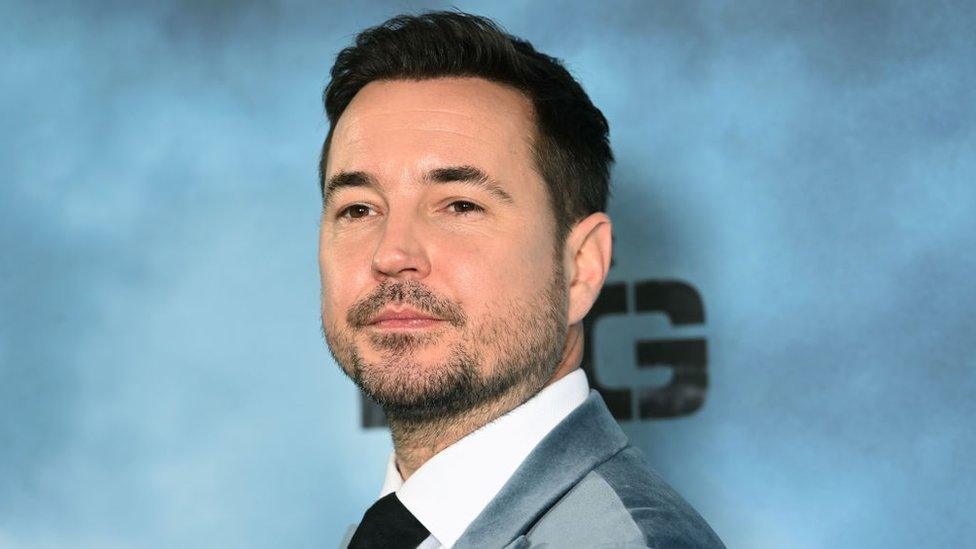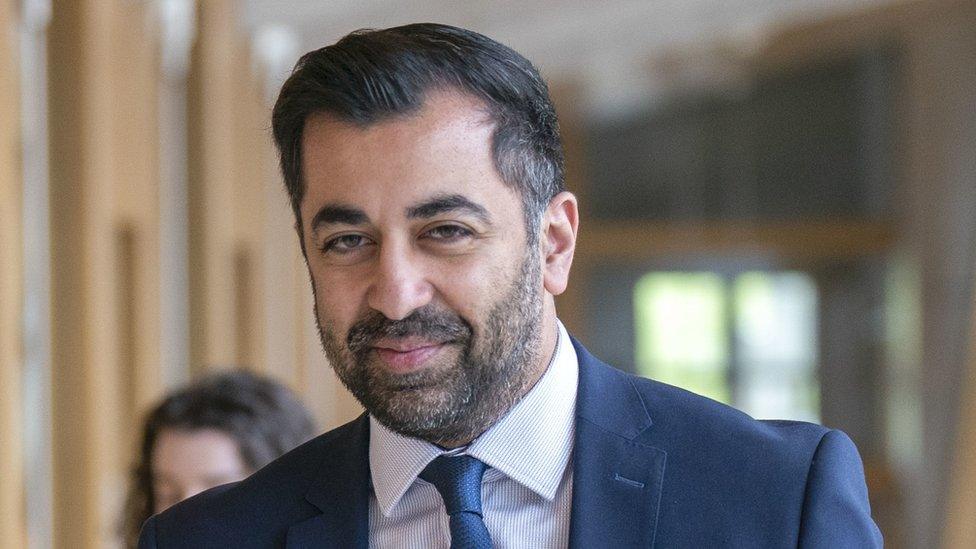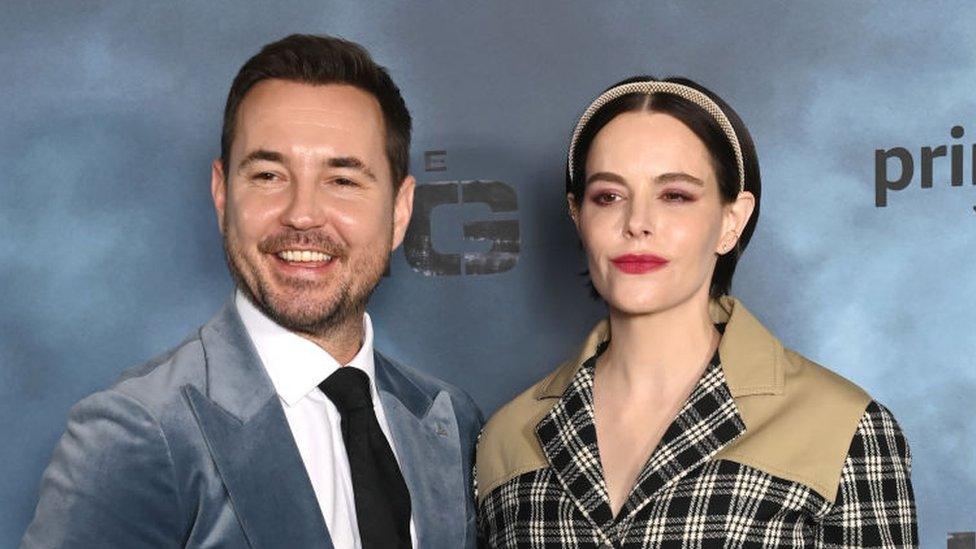Martin Compston asked Humza Yousaf for co-star vaccine advice
- Published

Mr Compston is a prominent supporter of the SNP and Scottish independence
Actor Martin Compston asked Humza Yousaf for advice in getting his co-star a vaccine during the pandemic.
Mr Compston wrote to Mr Yousaf in June 2021 saying that someone he was filming with wanted to be vaccinated but had "hit a brick wall".
The BBC has seen a redacted version of the email which does not name the person he was referring to.
But it has been widely reported to be Emily Hampshire, who was filming The Rig with Mr Compston in Edinburgh.
Mr Yousaf passed the email on to government officials, with NHS Lothian reported to have later offered Ms Hampshire a jab. The BBC has been unable to verify this.
Mr Yousaf had been appointed as Scotland's health secretary the previous month. He succeeded Nicola Sturgeon as SNP leader and the country's first minister earlier this year.
Mr Compston is a prominent supporter of the SNP and Scottish independence who appeared at the official launch event for Mr Yousaf's Holyrood election campaign in 2021.
In his email, the Line of Duty star wrote: "Hey mate hope you're well" before outlining how his fellow actor had "filled out all of the relevant stuff" to get a vaccine.
But he told Mr Yousaf that she "seems to be hitting a brick wall with being told it's another department's area each time".
Mr Compston said he was "just a bit worried" that she would have to go the whole summer without getting protection, highlighting the new variants of the virus and the fact that they still had two months of filming to go.
His email ended with Mr Compston asking Mr Yousaf if she would be "eligible to turn up to any drop in centres".

Mr Yousaf had been appointed as health secretary a month before Mr Compston emailed him
The redacted email was released by the Scottish government to the Times newspaper, external following a Freedom of Information request.
Mr Compston has been contacted for comment.
By the time Mr Compston approached Mr Yousaf, everyone in Scotland aged over 40 had been offered a vaccine and invites were being sent to those aged between 30 and 39.
It was also the policy to vaccinate those temporarily residing in Scotland even if they were not UK nationals, so Ms Hampshire would have been entitled to a vaccine under the rules in place at the time.
It is understood that Mr Yousaf forwarded the email to his private office. It was passed to the Scottish government's health policy team and then to NHS Lothian.

Martin Compston and Emily Hampshire were filming The Rig in Edinburgh at the time that the email was sent
A Scottish government spokesman said: "The then health secretary received a number of queries of this nature from members of the public who, for different reasons, were having issues accessing vaccination.
"It is standard practice for officials to liaise with the relevant health board to reach a resolution and ensure the individual can get the vaccine they are entitled to.
"Through this process people were only ever vaccinated in line with their eligibility."
Opposition parties have called on Mr Yousaf to refer himself to the ethical standards commissioner to investigate whether he breached the ministerial code.
Labour's shadow Scottish secretary, Ian Murray, said Mr Yousaf should have been aware that intervening in the process of a personal friend would "look at the very least highly suspicious and at worst a clear example of using his position to the advantage of those close to him".
Scottish Conservative MSP Annie Wells said: "Ordinary Scots who were keen to secure their own vaccine appointments could only have dreamt of asking of calling in such a favour during the rollout."


The single most important question is whether Humza Yousaf breached the ministerial code in his response to Mr Compston.
The BBC has seen no evidence that he did.
It is however worth asking why arranging a vaccination appointment appeared to be proving so difficult.
Mr Compston's email does not suggest he wanted special treatment and there is no suggestion that he did anything wrong by contacting Mr Yousaf directly.
It is not unusual for senior politicians to receive letters or emails asking them for help and information. What matters is how a politician responds.
Perhaps though the informal nature of the message is the thing which political opponents may seek to exploit.
Even the impression that an actor who supports a party or a cause may get some sort of special access is something Mr Yousaf may want to counter.